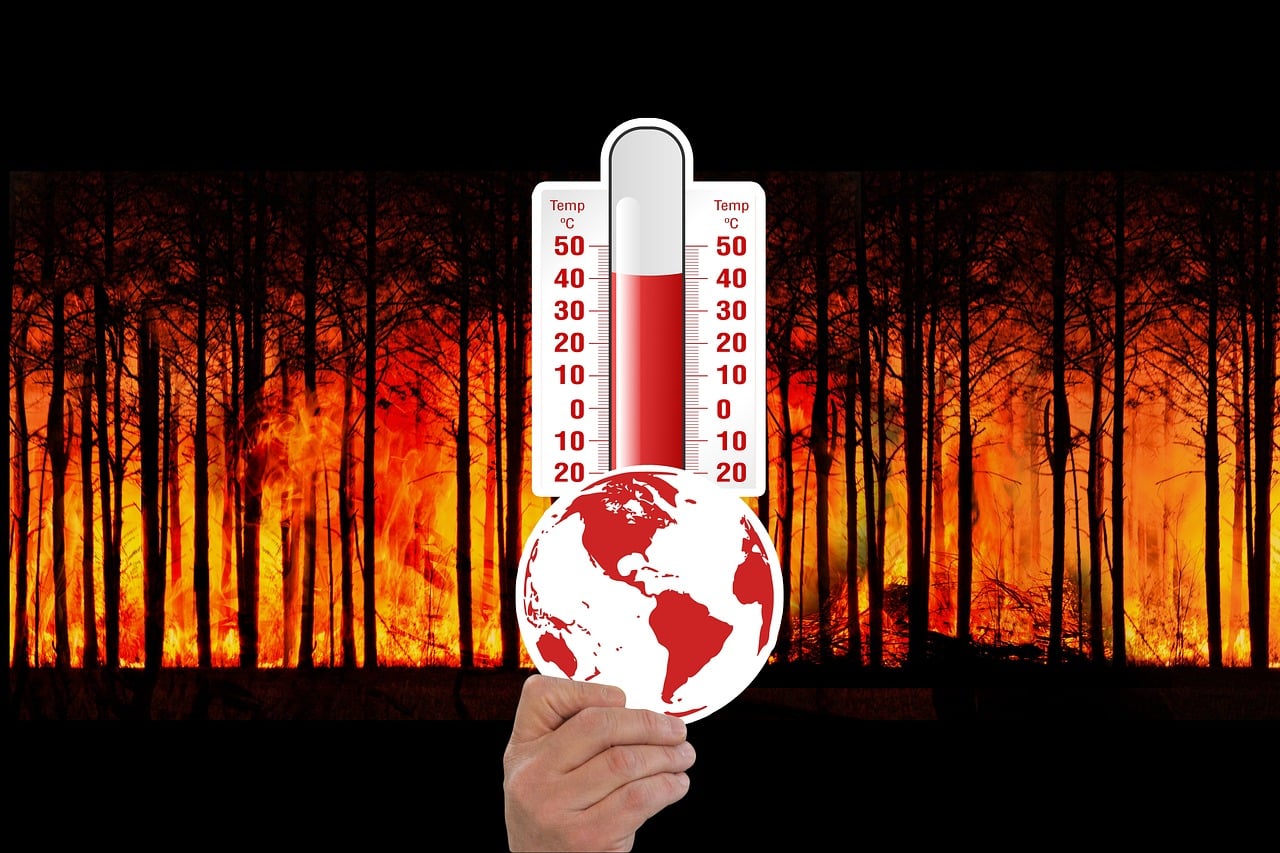
Global warming is a phenomenon linked to the sustained increase in average temperature.
Global warming is a phenomenon observed in the average temperature of recent decades, which rises steadily. The notion also alludes to a theory that, based on different projections, maintains that the temperature will continue to rise in the future due to human action.
Despite the popularity that the topic has garnered in recent years, it is important to make some distinctions. Global warming is usually associated with climate change , although the latter phenomenon ( climate variation) has always existed and is natural. In any case, currently climate change is usually known as change produced by human action, which generates anomalous variations.
On the other hand, global warming is associated with the greenhouse effect , which is a phenomenon by which certain gases that make up the Earth's atmosphere retain part of the energy emitted by the soil after having been heated by the Sun 's radiation. The greenhouse effect works in the following way: solar radiation passes through the atmosphere, bounces off the ground and should pass through the atmosphere again; However, greenhouse gases (such as carbon dioxide and methane ) produce a layer of pollution that prevents the sun's rays from coming out again, causing an increase in temperature on Earth .
Consequences of global warming on health
Among the main consequences generated by global warming, we have to state that, in addition to the considerable increase in temperatures , there can be an increase in respiratory diseases experienced by humans.
In this way, experts in the field rule that, if this phenomenon continues to occur, the world's population will be much more exposed to respiratory pathologies. In addition, the number of people suffering from cardiovascular diseases will increase, who will suffer from dehydration and also infections caused by mosquitoes or similar animals.
These consequences referring to the field of health are fundamentally due to the fact that both the respiratory and cardiovascular systems are damaged by increasing temperatures since these result in any individual having to make a greater effort to undertake any action or activity.

Global warming could cause glaciers to melt, generating floods due to rising sea levels .
Problems with water and crops
In the same way, global warming will cause both surface and groundwater to lose quality as a result of these high temperatures. All of this without forgetting that in both cases the amount of water would be palpably reduced and the amount of drinking water that is suitable for human consumption would significantly decrease.
The latter fact would especially harm sectors such as agriculture since the lands would become drier, lose nutrients and would also be more affected by pests, which cause diseases in plants and, consequently, spoil crops.
Although certain specialists consider global warming to be a myth, there is a certain consensus on the need to reduce polluting emissions to prevent warming from continuing to increase. If the trend is not reversed, the glaciers could melt, increasing the water level in the oceans and flooding numerous cities, to mention another effect.

Forest fires, intense storms, polar melting and soil erosion are some of the consequences of global warming.
The fight against global warming
The international community has agreed on various steps to mitigate global warming. The Kyoto Protocol and the Paris Agreement , for example, are instruments that aim to reduce the use of fossil fuels to minimize carbon emissions and air pollution and thus maintain global temperatures at acceptable levels.
It cannot be failed to mention that global warming also causes desertification , droughts, ocean acidification and the recurrence of extreme weather events, causing the loss of biodiversity and promoting the extinction of species . In short, global warming puts food security and public health at risk, even threatening survival.
The use of renewable energy to reduce pollution and guarantee sustainability appears as a necessary path. Investment is required in clean energy, facilities for the acquisition of electric cars and promoting public transportation, among other measures, to achieve a reduction in emissions and the carbon footprint.
Beyond temperature and atmospheric warming, improving air quality is essential to care for the well-being of the population. The authorities, therefore, must work in this direction and generate the necessary consensus with large industries, in addition to raising awareness among the population about these issues through environmental education . Each individual must opt for responsible consumption and adopt environmentally friendly behavior, resorting to recycling , appealing to clean technologies, practicing ecotourism when traveling, etc.
